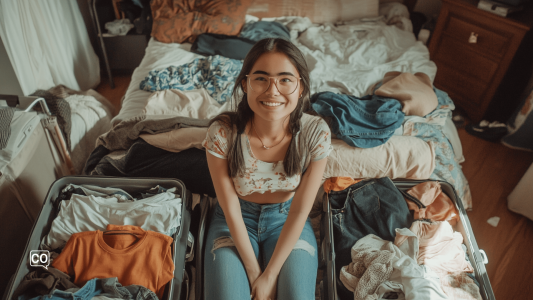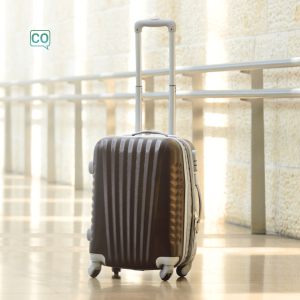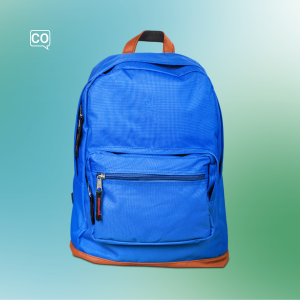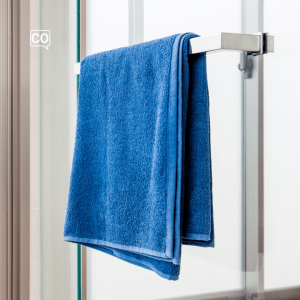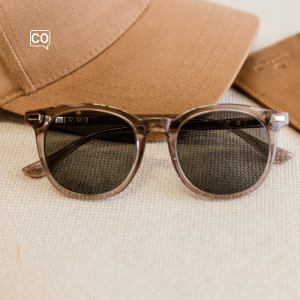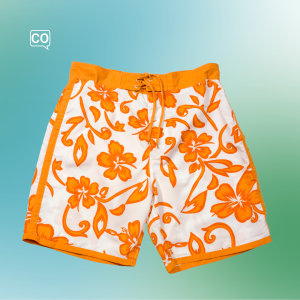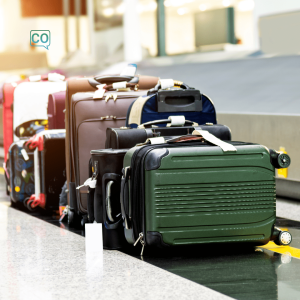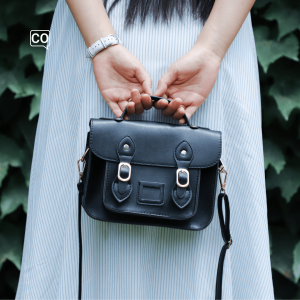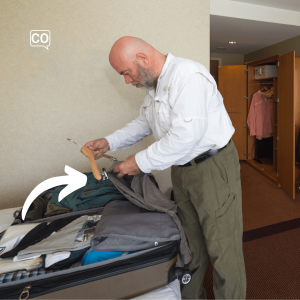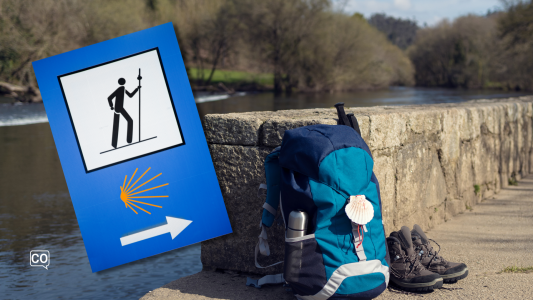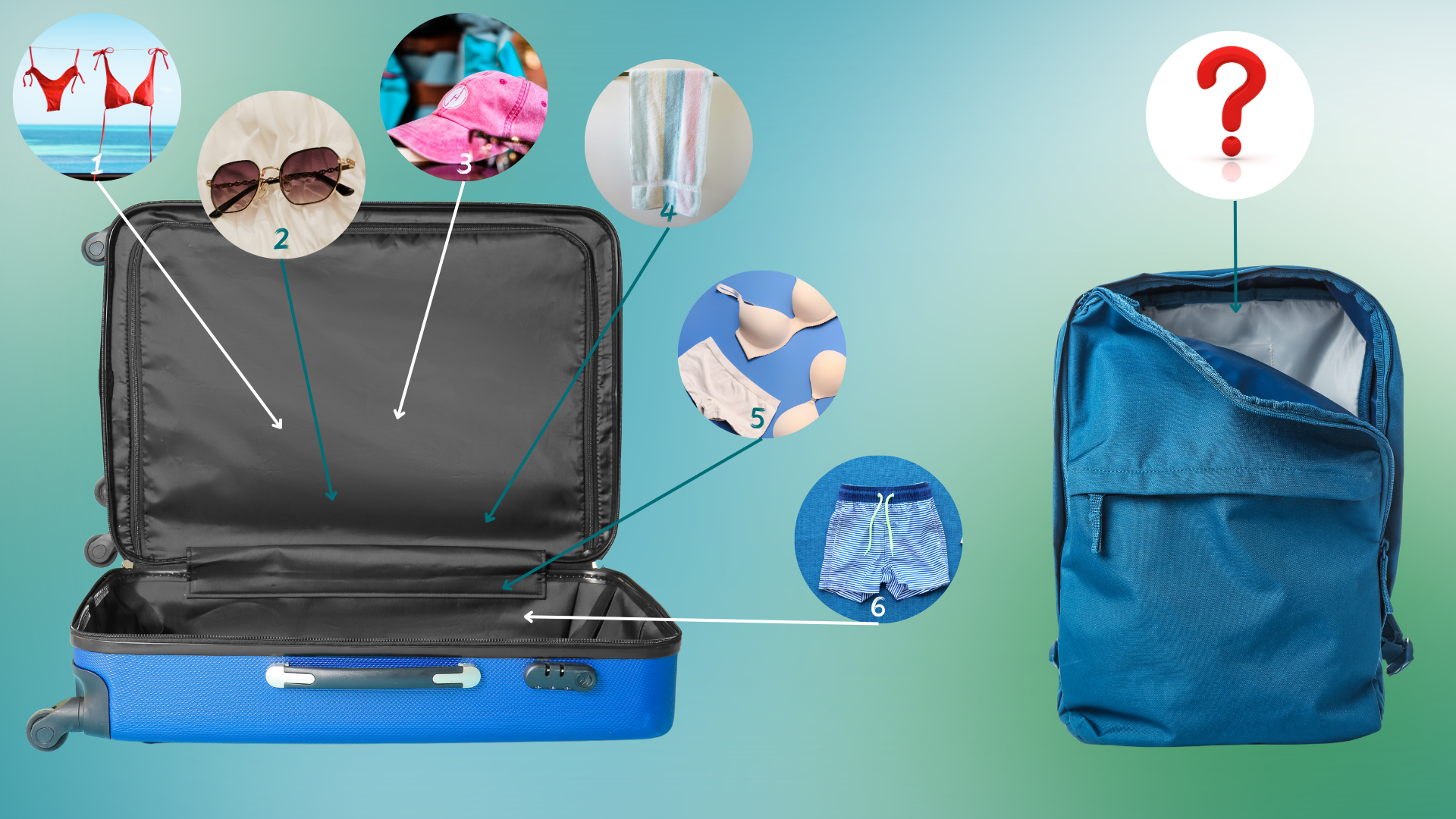Vocabulary (12) Share Copied!
Listening & reading materials
Follow adventures of Eva, Ana, Juan and Pedro.
Grammar
It's not the most exciting thing, we admit, but it’s absolutely essential (and we promise it'll pay off)!
Conversation exercise Share Copied!
- Describe lo que Ana y Juan meten en la maleta. (Describe what Ana and Juan pack in the suitcase.)
- ¿En qué festivo van? (On what holiday are they going?)
- Cuenta qué vas a empacar dependiendo de tus próximas vacaciones. (Tell what you are going to pack depending on your next holiday. )
Teaching guidelines +/- 10 minutes
Example phrases:
|
Ana guarda su bikini en la maleta. Ana packs her bikini in the suitcase. |
|
Juan mete una toalla en la maleta. Juan packs a towel in the suitcase. |
|
Van a ir a algún lugar donde hace buen tiempo. They are going to go somewhere where the weather is good. |
|
Voy de excursión. I am going on a hiking trip. |
|
Por lo tanto, voy a empacar botas de senderismo y pantalones largos. Therefore I am going to pack hiking boots and long trousers. |
|
Solo voy a empacar pantalones cortos y camisas porque voy a volar a Mallorca. I am only going to pack short trousers and shirts because I am flying to Mallorca. |
| ... |
Exercises Share Copied!
These exercises can be done together during conversation lessons or as homework.
Exercise 1: Reorder sentences
Instruction: Make correct sentences and translate.
Exercise 2: Translate and use in a sentence
Instruction: Pick a word, translated and use the word in a sentence or dialogue.
1
La toalla
The towel
2
La maleta
The suitcase
3
El bañador
The swimsuit
4
La ropa interior
The underwear
5
Las gafas de sol
The sunglasses
Exercise 3: Verb conjugation
Instruction: Choose the correct verb and tense.
ha hecho, ha puesto, he hecho, has hecho, habéis puesto, has puesto, han hecho, hemos hecho
Exercise 4: Verbos irregulares en el pretérito perfecto
Instruction: Fill in the correct word.
hecho, puesto, visto, vuelto, roto, abierto, escrito, dicho
Additional learning materials Share Copied!
Appendix 1: Extended vocabulary table Share Copied!
Core vocabulary
(12):
Verbs: 2,
Nouns: 10,
Context vocabulary:
1
| Spanish | English |
|---|---|
| Deshacer | Unpack |
| El bañador | The swimsuit |
| El biquini | The bikini |
| El bolso | The bag |
| El equipaje | The luggage |
| La gorra | The baseball cap |
| La maleta | The suitcase |
| La mochila | The backpack |
| La ropa interior | The underwear |
| La toalla | The towel |
| Las gafas de sol | The sunglasses |
| Llenar | To pack |
| Maletas | Suitcases |
Appendix 2: Verb conjugation tables for this lesson Share Copied!
Hacer to do Share Copied!
Pretérito perfecto
| Spanish | English |
|---|---|
| yo he hecho | I have done |
| tú has hecho | You have done |
| él/ella ha hecho | he has done |
| nosotros/nosotras hemos hecho | we have done |
| vosotros/vosotras habéis hecho | You all have done |
| ellos/ellas han hecho | They have done |
Poner to put Share Copied!
Pretérito perfecto
| Spanish | English |
|---|---|
| yo he puesto | I have put |
| tú has puesto | You have put |
| él/ella ha puesto | he has put |
| nosotros/nosotras hemos puesto | we have put |
| vosotros/vosotras habéis puesto | You lot have put |
| ellos/ellas han puesto | They have put |
Don't see progress when learning on your own? Study this material with a certified teacher!
Do you want to practice Spanish today? That is possible! Just contact one of our teachers today.
